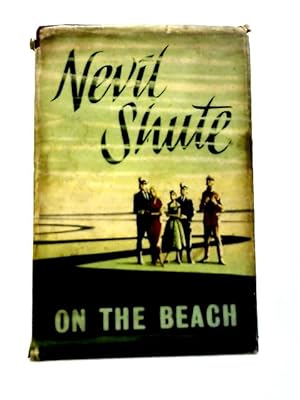


(Yes, Shute wrote a lot about war and its aftermath.) “…there was a fishing-boat with a deep brown lug sail coming in from the sea faintly they heard the putter of an engine.” Shute used it in the 1942 novel Pied Piper, about a man who rescues children from the Nazi invasion of France. Shute also has the first published citation for the noun “putter,” the “putt-putt” sound of an internal combustion engine.

Something that is “dicey” is akin to rolling the dice and hoping to win.

The OED says “dicey” was originally Air Force slang, derived from a “die,” the spotted cube used in gambling and other games. “He edged over to the starboard side and made a tight, dicey turnaround in the gorge with about 100 feet to spare.” Even if you had never heard the word “dicey” before, the circumstances give you enough context to understand it. In the book, a pilot who is also central to the plot (no spoilers!) is flying through a misty gorge. It also appeared in A Town Like Alice, a novel about two former Japanese prisoners of war who reunite and settle in Australia. Shute is also cited for the first published usage of “dicey,” to mean “risky, unpredictable,” as Merriam-Webster ’s definition has it. He used it again in his 1951 novel Round the Bend the same book added a usage as a verb meaning to curse or damn. Shute used “mugger” as a slang term for a man in his 1945 novel Most Secret. He is credited with two uses of “mugger,” neither the one we commonly use today for a robber. Some of Shute’s first usages are lost in obscurity or Australian dialect, like “chunder,” which means “to vomit” (from the 1950 novel A Town Like Alice ). (Shakespeare is quoted more than 32,000 times, so don’t get too excited.) Of those 547 Shute citations, 9 provide what the OED calls the first evidence of a word. Nevil Shute is probably best known for his postapocalyptic 1957 novel On the Beach (spoiler alert: everyone dies), and his work is mostly ignored these days, but his writings are cited in the Oxford English Dictionary 547 times.


 0 kommentar(er)
0 kommentar(er)
